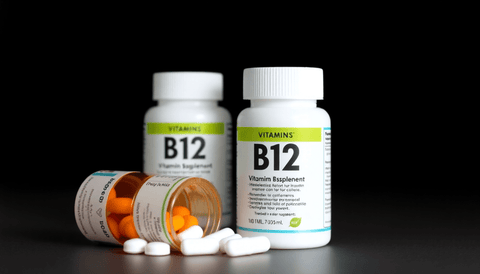Discover Vitamin B12 benefits: this page examines how the phrase benefits of vitamin b12 appears in a range of sources, from scientific literature to consumer guides. The goal is to help readers understand what this term means in context, how information is presented, and how to approach it critically. Rather than promoting unverified claims, the content highlights where information comes from, offers daily tips for learning, and discusses signs of deficiency that appear in the literature, all framed around the keyword benefits of vitamin b12. Sources: credible sources for the benefits of vitamin b12 include government health fact sheets (such as the NIH fact sheet), peer‑reviewed journals, and professional association guidelines. When you assess material that mentions the benefits of vitamin b12, compare explanations across sources, pay attention to scope and methods, and check publication dates to understand current knowledge. This approach helps distinguish descriptive information from recommendations and practical guidance. Daily tips: to explore this topic each day, set a small, concrete goal such as reading a reputable article or summarizing one reference. Create a short list of trusted sources, and keep notes on how the benefits of vitamin b12 are described in different contexts. Practice critical reading by noting terminology, definitions, and whether claims are supported by evidence. If you have personal questions, seek guidance from a qualified professional rather than relying on uncertain sources. Signs of deficiency: some literature describes signs associated with deficiency that are sometimes linked to vitamin b12, such as fatigue, sensory changes, or mood and cognitive symptoms. Keep in mind that signs vary by source and individual, and that interpretation should be guided by clinical assessment. The goal here is to present a neutral overview of signs mentioned in credible material and encourage readers to consult professionals for evaluation.


